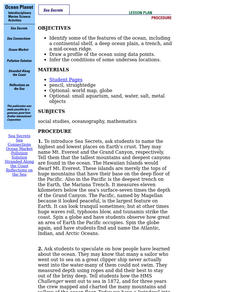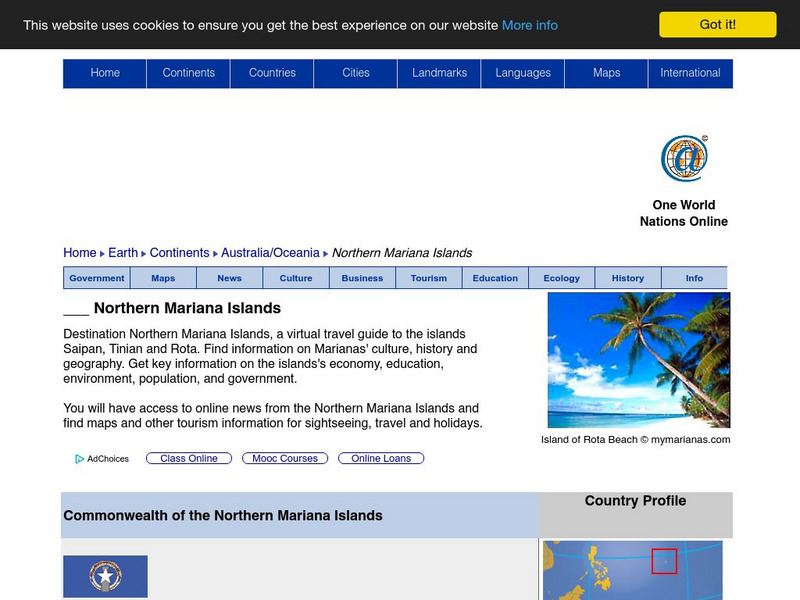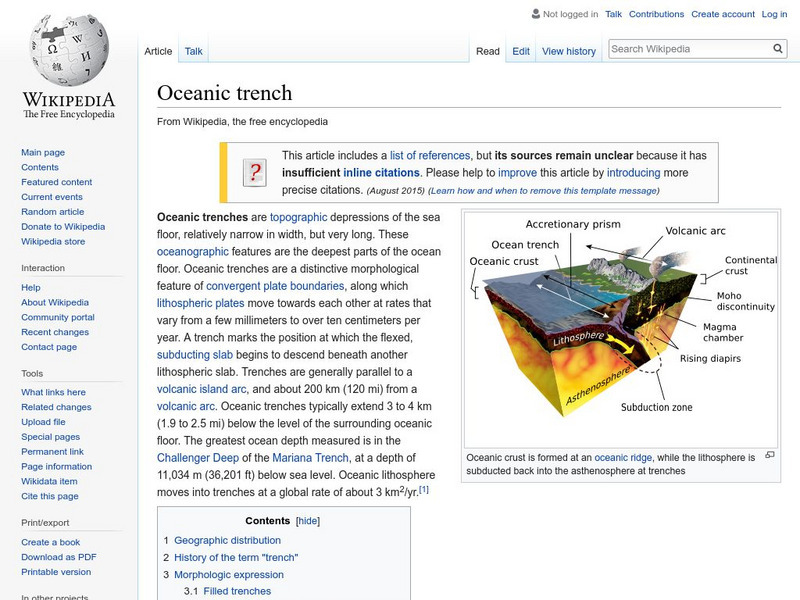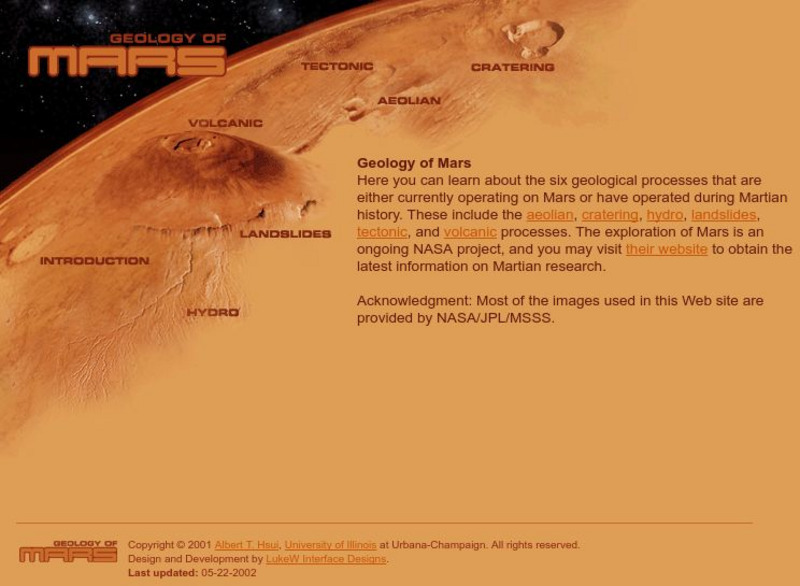Curated OER
Ocean Planet: Sea Secrets
Students identify ocean features and draw a profile using data points on a map. Through discussion and research, they discover the importance of oceanography and plot a profile of the ocean floor in search for a vessel full of precious...
National Geographic
National Geographic: Adapting Under Pressure
Students learn about James Cameron's Challenger Deep dive and about the marine animals that live in different layers of the ocean. They then study the characteristics of the hadalpelagic zone at the bottom of the ocean, and imagine and...
National Geographic
National Geographic: Encyclopedia: Ocean Trench
Comprehensive information about deep-ocean trenches. Includes maps, a video [1:29], and a vocabulary list.
American Academy of Achievement
Academy of Achievement: James Cameron
A biography of James Cameron, a Canadian-born filmmaker whose movie The Titanic won an astounding eleven Academy Awards. More recently, he has explored the depths of the ocean in a specially designed submarine. Includes a profile,...
Smithsonian Institution
National Museum of Natural History: Ocean Planet
Detailed website that was a companion to a 1995 traveling exhibit of the Smithsonian. Links to lesson plans and other educational materials are at the bottom of the page. Enter the exhibition to explore the world of the ocean.
Encyclopedia Britannica
Encyclopedia Britannica: Geology: Deep Sea Trench
Detailed information about oceanic trenches, their structure, and how they are formed. Discusses the twenty trenches that exist around the world. Includes several labeled illustrations.
Nations Online Project
Nations Online: Northern Mariana Islands
A great country profile and travel guide that takes you on a virtual trip to the Northern Mariana Islands. An overview is given on its art, culture, people, environment, geography, history, economy, and government. There are numerous...
Science Struck
Science Struck: Facts About the Aphotic (Midnight) Zone of the Ocean
The aphotic zone of the ocean receives less than one percent of sunlight penetration. It extends from between 200 to 1,000 m, or 660 to 3,300 ft, down to the seafloor. Learn about the characteristics of this zone and the adaptations the...
Science Struck
Science Struck: What Are Ocean Trenches and How Are They Formed?
Around 72 percent of the Earth's surface is found under the oceans. It has always been contributing to the dynamically changing face of the Earth through the tectonic phenomenon occurring at its depths. Such a naturally occurring...
Wikimedia
Wikipedia: Pacific Ring of Fire
Wikipedia offers information on the location of the Pacific Ring of Fire, an area of frequent earthquakes and volcanic eruptions. Map included.
Wikimedia
Wikipedia: Oceanic Trench
Wikipedia provides brief information on oceanic trenches, and has a hyperlinked list of major world trenches.
Other
Luke W Interface Designs: Geology of Mars
Learn about six geological processes from Luke W Interface Designs that are happening or have happened on Mars. Ex: aeloian, cratering, landslides, volcanic, and more.












